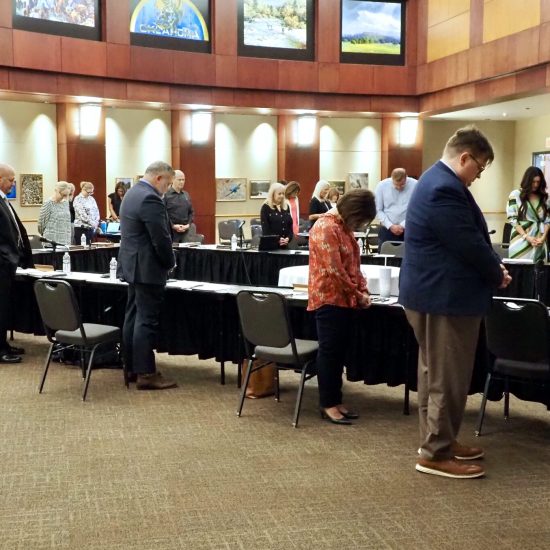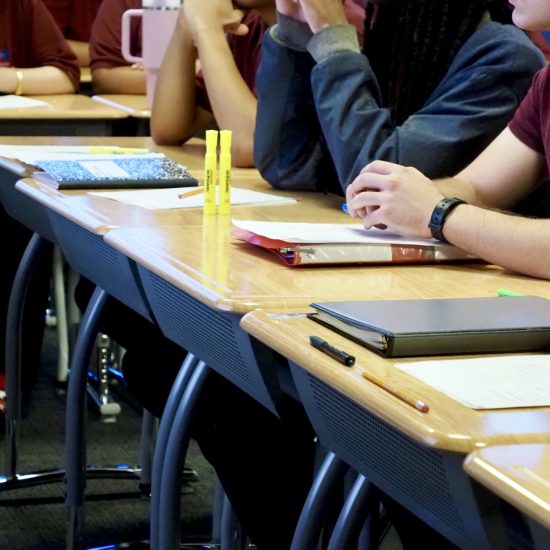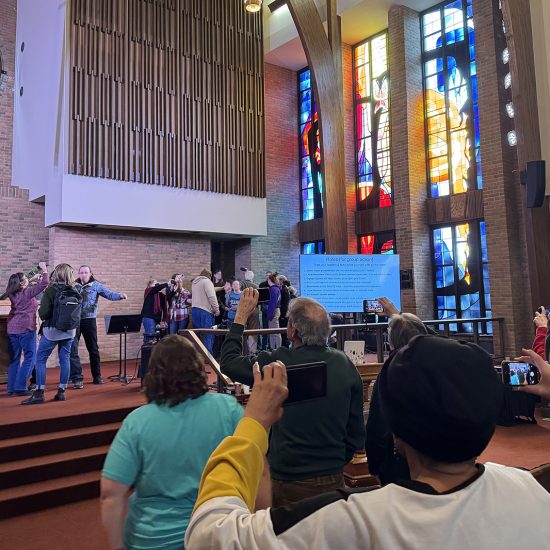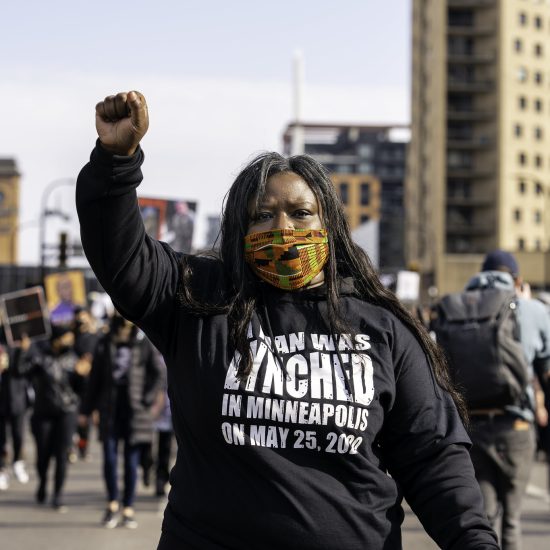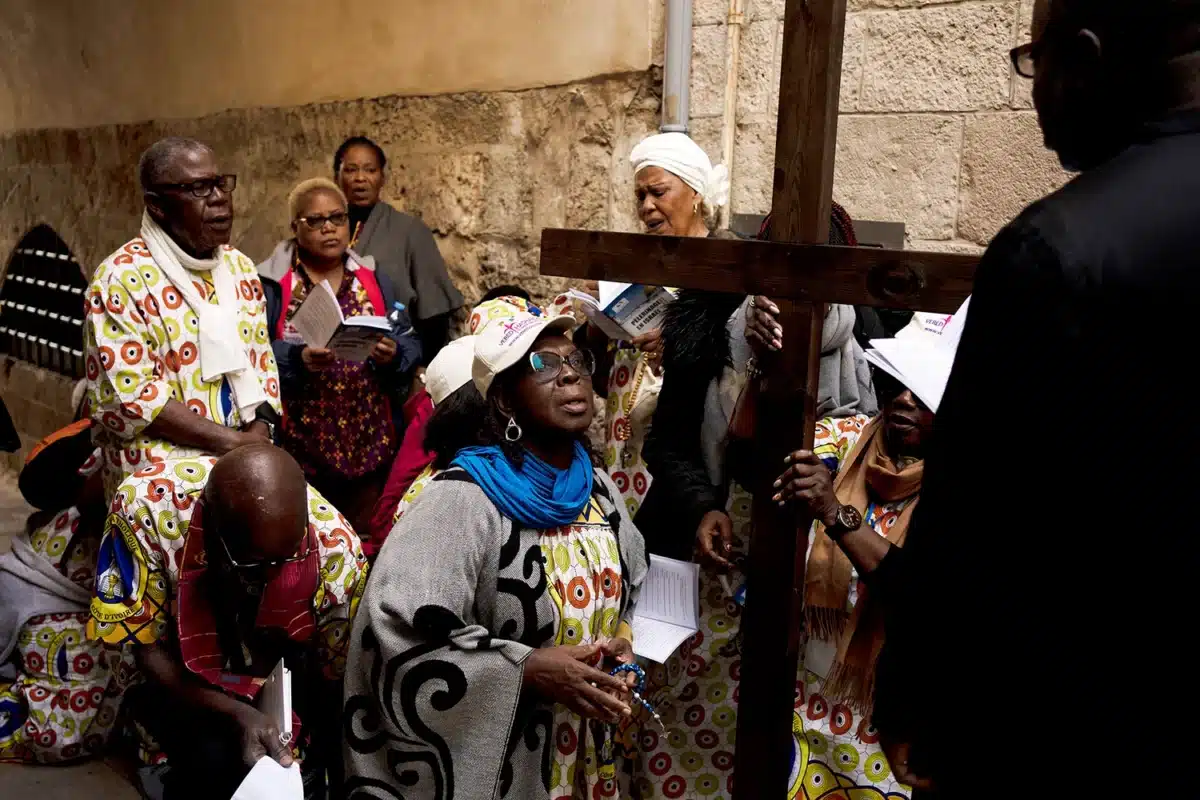
JERUSALEM (RNS) — As anti-Christian incidents perpetrated by religious Jewish extremists have increased in number during the past several months, church leaders are pleading with government officials to take the matter more seriously.
Until recently, those pleas have gone largely unheeded. Preoccupied with an unprecedented political crisis sparked by the December 2022 election of a government dominated by nationalists and ultra-Orthodox Jews, Israeli officials have given little attention to the anti-Christian assaults, say church leaders.
Bishop Rafic Nahra in Nazareth, Catholic patriarchal vicar for Israel, called the police response “weak.”
“If synagogues were being attacked, the response would be stronger,” he asserted.
Police have arrested only a handful of the teenagers and young men who have spat at nuns and priests in the Old City of Jerusalem, vandalized church property, and disrupted Christian prayer gatherings.
This inaction has spurred even more attacks by dozens of religious extremists scattered around the country, according to resident Christians.
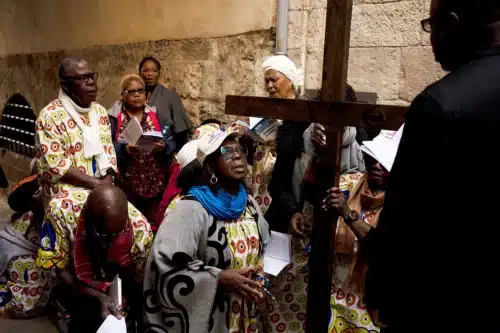
Christians pause along the Via Dolorosa, a route that is believed to be the path Jesus walked to his crucifixion, on Good Friday in the Old City of Jerusalem, Friday, April 7, 2023. (AP Photo/Maya Alleruzzo)
“The number of the incidents, the intensity, and brazenness, leads us to believe that these fringe elements in society are becoming emboldened because they believe that certain elements in the government have their backs,” according to David Parsons, vice president of the evangelical International Christian Embassy Jerusalem.
But on Aug. 9, the government appeared to take notice. President Isaac Herzog visited the Stella Maris Monastery and Catholic Church in Haifa after a sect of ultra-Orthodox Jews, who believe the prophet Elijah is buried beneath the monastery, repeatedly tried to storm the Catholic holy site. The monastery was built on top of a grotto, or cave, where, according to tradition, Elijah once lived.
“I come here on behalf of the entire state and people of Israel to reinforce our commitment to the full protection of freedom of religion and worship in the State of Israel,” the president told local Christians, who comprise roughly 2% of Israel’s population of nearly 10 million citizens.
Herzog noted there have been several “very serious incidents” against the various Christian denominations in recent months.
“I view this phenomenon extremely seriously; it is unacceptable in any way. This phenomenon needs to be uprooted, and I am very grateful to the Israel police and the enforcement agencies for taking this issue seriously,” Herzog said.
Since the beginning of the year, extremists have also desecrated graves at the cemetery of the Anglican church on Jerusalem’s Mount of Olives, and a visiting American Jew destroyed a statue of Jesus at the Church of the Flagellation on the Via Dolorosa. He was heard shouting “No idols in the holy city of Jerusalem!” while taking a hammer to the face of the statue.
On May 28, Pentecost Sunday, dozens of Orthodox Jews surrounded Christians praying at the Southern Steps in the Old City and accused them of being missionaries. A few of the protesters physically assaulted the Christians.
“In the 30 years I have lived in Israel, I have never seen such hatred and anger in someone’s eyes,” said Juergen Buehler, executive director of the ICEJ, who attended the event.
Soon afterward, Israeli lawmakers attending the annual Jerusalem Prayer Breakfast apologized for the incident.
“This behavior is completely unacceptable in my eyes. I would like to take this opportunity to apologize for this behavior on behalf of the Knesset,” Israel’s parliament, MK Matan Kahana, a former minister of religious affairs, told the gathering.
The incidents are organized by extremist groups like Lehava, who consider Christians to be enemies of the Jewish people following centuries of Christians evangelizing and persecuting Jews.
In a 2015 essay, Lehava founder Bentzi Gopstein claimed that Christians have spent billions of dollars to “disseminate spiritual poison” in Israel. “Missionary work must not be given a foothold. Let’s throw the vampires out of our land before they drink our blood again,” he wrote.
Gopstein, who was once indicted for alleged racism, violence, and terrorism incitement, is reportedly a close friend of Minister of National Security Itamar Ben-Gvir, a far-right-wing nationalist.
A representative for Lehava said the organization does not give interviews.
Sara Hirschhorn, a historian and political analyst, said Lehava is a “very fringe movement” that believes the Holy Land is for Jews alone. “It is violently anti-Arab and anti-miscegenation, and pro Jewish purity and supremacy.”
Most of its members are teenagers, she said. “It’s like a gang in the U.S. whose ideology is virulent and violent.”
Since December, when Ben-Gvir and other religious right-wing lawmakers formed the governing coalition, groups that attack Christians “don’t have fear of negative consequences like being thrown into prison or disbanded,” Hirschhorn said. “They feel they can carry on what they’re doing fairly unimpeded.”
Although the police have vowed to become more vigilant and have added more surveillance cameras around Christian institutions in the Christian Quarter of the Old City of Jerusalem, and there is now a hotline to report anti-Christian actions, local Christians remain skeptical that much will change in the short term.
While acknowledging the importance of Herzog’s visit, Wadi Abunassar, a prominent Israeli Christian in Haifa, predicted that as long as extremist lawmakers are in the government, there will not be accountability.
Abunassar recounted the conversation he had with an Israeli rabbi who visited the monastery to express solidarity with the Christian community.
“The rabbi compared the extremists to aggressive dogs. He said the dogs have always been here, but they were chained. Now, because of the government, there is no chain.”
Israel is far from alone when it comes to religious extremists, Abunassar said.
“In every country in the world there are criminals, terrorists, troublemakers.” What is important, he said, “is whether state authorities are doing anything to deter the attacks.”
Parsons, of ICEJ, is hopeful the government will take more initiative moving forward. His organization is expecting more than 3,000 evangelical Christians from 90 countries to attend the annual Feast of Tabernacles this fall.
“We are already in dialogue with the police,” he said.



